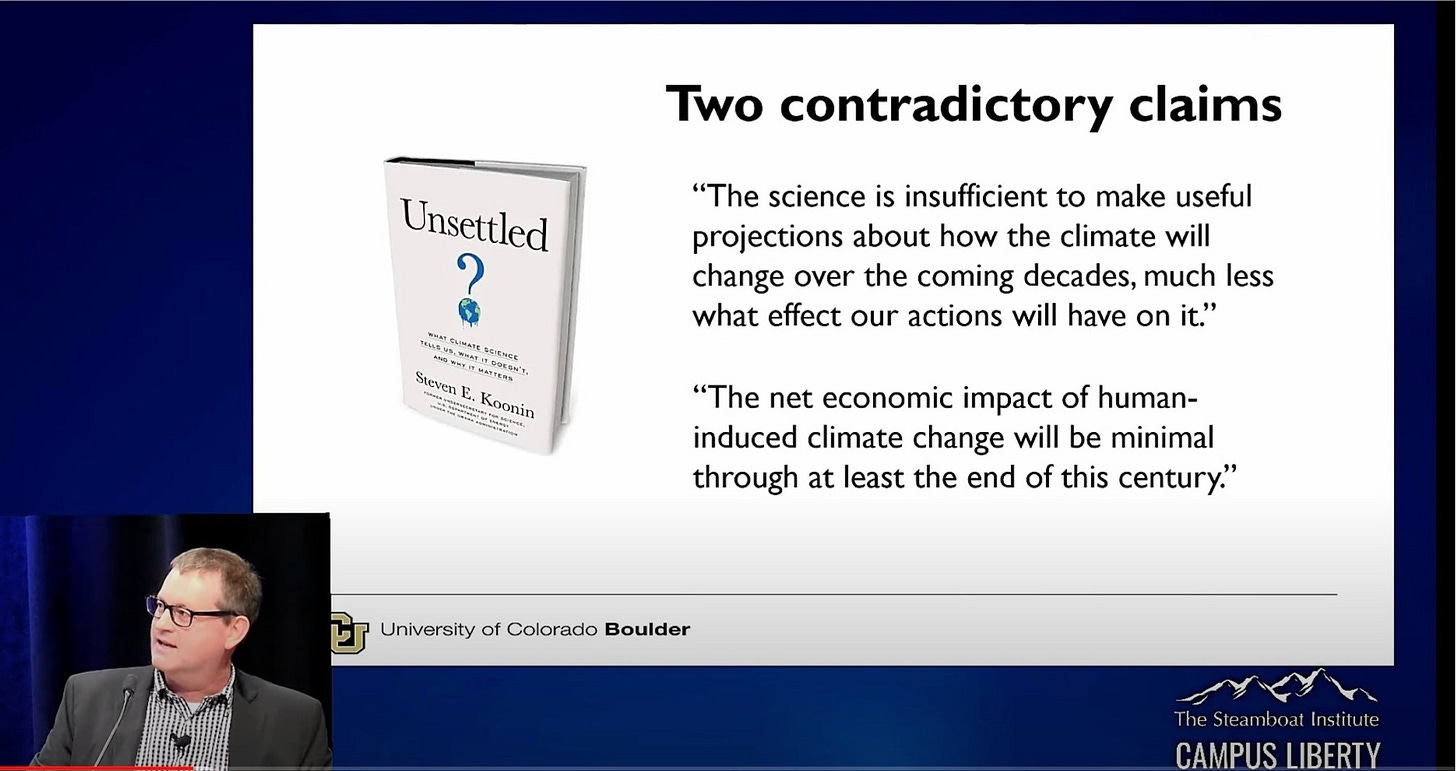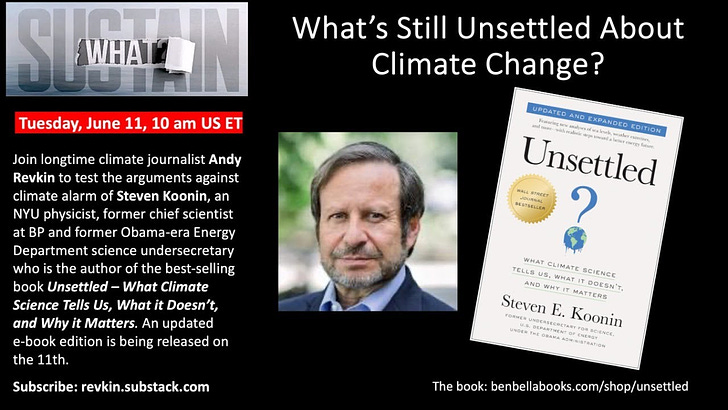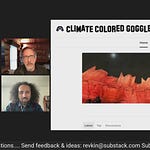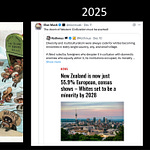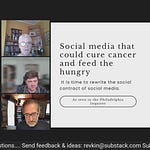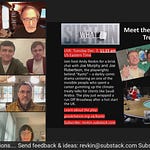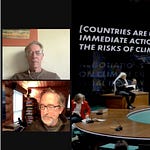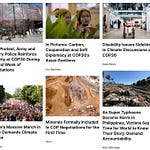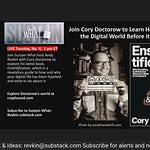I’m told that clicking the ♡ button increases the visibility of this post on Substack.
I hope you’ll watch and weigh in on this Sustain What episode testing the arguments against climate alarm of Steven Koonin, a former chief scientist at BP and former Obama-era Energy Department science undersecretary who is the author of the best-selling book Unsettled – What Climate Science Tells Us, What it Doesn’t, and Why it Matters. An updated edition was eleased on June 11th.
You can also watch and share the conversation on YouTube, X/Twitter, Facebook or LinkedIn.
Koonin, who’s joining the Hoover Institution this fall as a senior fellow, has a new op-ed out in the Wall Street Journal titled “The ‘Climate Crisis’ Fades Out.” He warns that overreach based on overheated interpretations of climate science is already causing societal pushback.
We agreed on many points but I proposed that his emphasis on “unsettled/settled” as the threshold for shaping decisions can leave societies racing to pursue solutions too late because climate change is more like a one-way ratchet than a knob that can be turned back.
I also proposed that, to be a neutral science-focused arbiter would require dissecting the arguments of pundits, media and, particularly politicians who weaponize uncertainty. The book is almost entirely aimed at overstatment on the part of climate-crisis campaigners.
We were joined by Roger Pielke Jr., a longtime climate policy analyst you’ve seen here before. Read Pielke’s critique of Koonin’s book (which largely tracks my views):
Pielke also debated Koonin last year on the question, “Is Net Zero by 2050 Possible?” We revisited this criticism of the book taken from that debate:
Koonin’s book, which was first published in 2021 and has, according to the publisher, sold some 200,000 copies, grew out of arguments he made in an opinion piece he wrote for The Wall Street Journal in 2014. I reached out to him at that time with a couple of questions and posted them and his answers on my Dot Earth blog. Click to my announcement of this webcast for that piece, which laid the foundation for todays discussion:
Testing the Assertions of Climate Science Critic Steve Koonin
I hope you’ll watch and weigh in on this Sustain What episode testing the arguments against climate alarm of Steven Koonin, a former chief scientist at BP and former Obama-era Energy Department science undersecretary who is the author of the best-selling book







